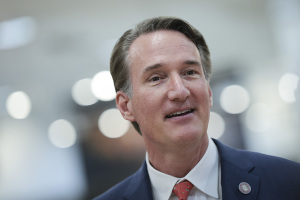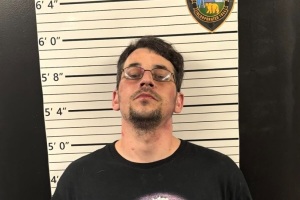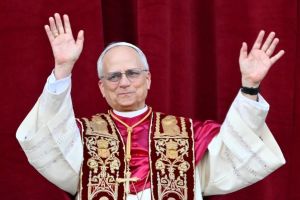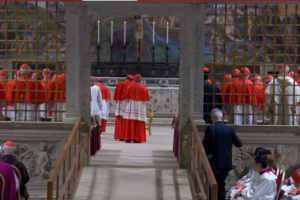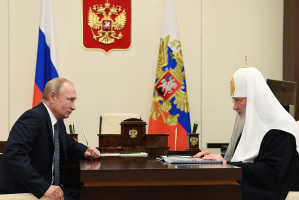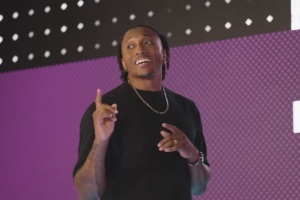Pres. Trump holds roundtable with black leaders on race, police reforms
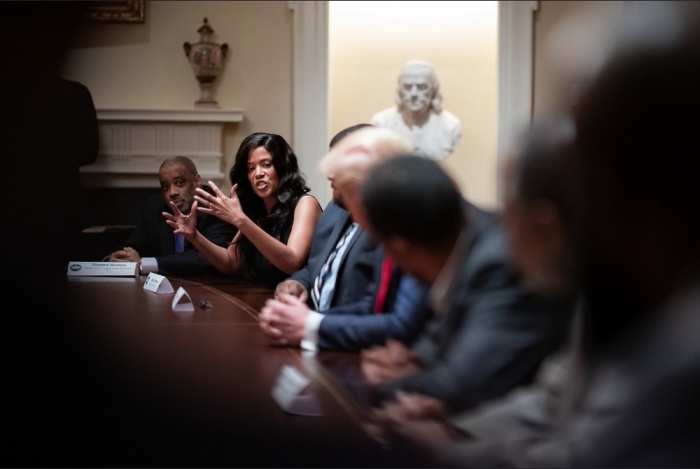
Conservative black leaders met with President Donald Trump at the White House Wednesday, where they urged the administration to support policing reforms and shared ideas about other initiatives to benefit black communities.
The meeting was held ahead of Trump's visit to Dallas, Texas, Thursday where he held a similar meeting with black leaders to discuss racial issues as the administration works out the final details of its own police reform proposal in the wake of nationwide protests following the officer-involved death of George Floyd.
"A lot of these things are systemic," said Ja'Ron Smith, assistant to the president on domestic policy at Wednesday's meeting. "We need to break down that system and fight back."
"You know, opportunity zones, [historically black colleges and universities], criminal justice reform, those are reversing some systemic issues," Smith said, highlighting some of the administration's previous achievements.
He also stressed that the administration is looking at other layers of systemic issues.
"We just saw what COVID shined a spotlight on, on access to capital; it shined a light on health disparities. Recently, with the protests, how can we create better policing and community relations?" Smith asked.
"One thing we have done over the last couple of weeks is listening to individuals, and now we have some solutions, and those are things we are going to continue to work through as an administration."
Wednesday's White House meeting was also attended by Secretary of Housing and Urban Development Dr. Ben Carson, Pastor Darrell Scott, conservative radio host Wayne Dupree, Republican political consultant Raynard Jackson, and radio host Sonnie Johnson, among others.
Kareem Lanier of the Urban Revitalization Coalition said the president has been "nothing short of historic for black America," citing the criminal justice reform and Opportunity Zones Initiative. But Lanier added that the "current issue that we're having right now is police reform."
He stressed that police reform is "so much needed."
"We did criminal justice reform, but police reform is the gateway to what we see as an unjust criminal justice system sometimes," Lanier said. "Meaning, if a crooked cop doesn't do a terrible corrupt thing with an individual, we never get into that bad system."
Lanier added that the administration itself has been "marked by crooked cops," naming former FBI Director James Comey, who was fired by Trump in May 2017 amid the Russia investigation.
"I tell people this all the time, this whole situation with this policing, it's not new to black people," Lanier said. "We've been used to it. As a kid, I got harassed by the police all the time and … I think I was a good kid. But it's a part of our community. And so we do need some things to happen on the police reform side, which will connect with the great things we've already done historically with criminal justice reform. And we know that you're the president to get it done."
On Wednesday, White House Press Secretary Kayleigh McEnany announced that the White House is finishing a legislative proposal on policing reform. She stressed, however, that the president will not support reducing legal immunity for police officers.
In the U.S. House of Representatives, Democrats reportedly pulled a pro-police bill that had the support of over 200 members last year as lawmakers look to create more accountability for officers. The bill would have allowed public safety workers to collectively bargain with the government over hours, wages, and terms and conditions of employment.
On Monday, Democrats introduced a new police reform bill that bans chokeholds and creates a National Police Misconduct Registry "to prevent problem officers from changing jurisdictions to avoid accountability," according to a summary of the legislation obtained by CNN.
In addition to policing reforms, Lanier stressed that banking reforms are also needed to improve access to capital for the black community.
"We do also understand that we need some holistic approaches to create this ecosystem," Lanier said. "Voting rights, blacks have to go to get voting rights every 25 years or so now. These are things that are historic and we believe that you are the president to get these things done for the black community."
Other speakers at the roundtable did not hold back when it came to criticizing the policies of the Democratic Party and what they perceive to be the media's partisanship when it comes to Trump's policies in the black community.
"Think about the black community that has been under Democratic rule, progressive rule for 60 years," Johnson, a radio host and Tea Party activist, said. "How many rules, how many regulations, how many different forms of taxation are on the books in those areas that are preventing our communities from actually being able to see sustainable growth that we can keep and get ourselves out of this trend of generational poverty."
She also voiced concerns that even through Opportunity Zone Initiatives, it can be difficult to get funding if people don't follow the agenda of the Democrat local officials.
"If the Opportunity Zones pass from a federal level, they then go down to the state and then are allocated on a local level. So for us, as black people to actually access the Opportunity Zones, I have to go talk to Democrats and I have to be willing to do what they want to do under their agenda, how they want it done for me to be able to have access to the Opportunity Zone funds," she said.
"So that's where, when you see in our communities, instead of getting young blacks to invest and become entrepreneurs and become owners, you're getting gentrification."
Carson stressed that the administration is in the process of working to fix that issue.
"The community development, financial institutions, the credit unions, the local banks have been excluded from a lot of the dissemination of the funds previously," Carson said. "That's been recognized, it's in the process of being corrected right now."
Jackson, who served on the presidential campaigns of George H. W. Bush and George W. Bush, also didn't hold back.
"What I like to say to you, Mr. president, is kind of off the beaten path. I'd like to say to all the media assembled here, I wish they would quit lying about what you've done, specifically for the black community," he said, noting that commentators like CNN's Don Lemon or MSNBC's Joy Reid are "putting more poison into the black community than any drug dealer."
Follow Samuel Smith on Twitter: @IamSamSmith, or Facebook: SamuelSmithCP.
















